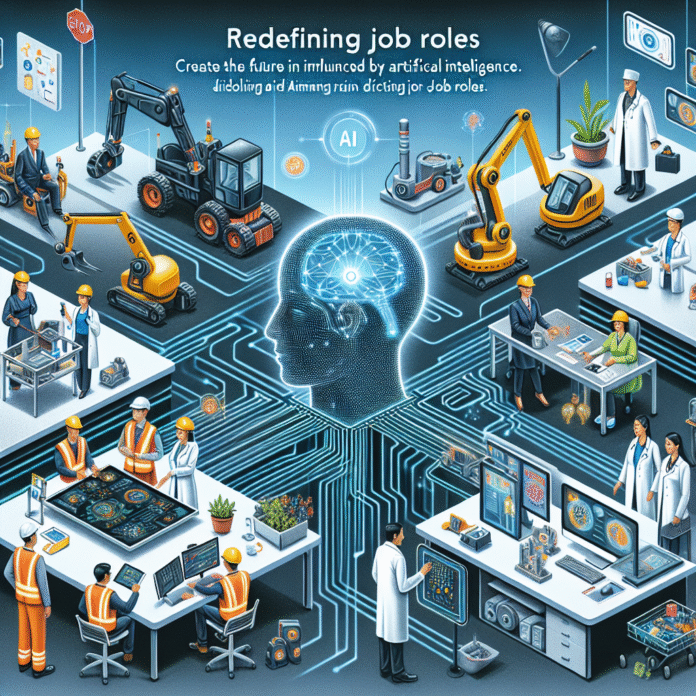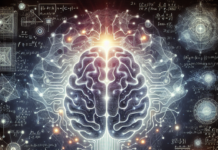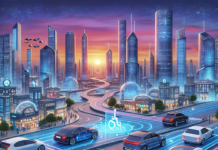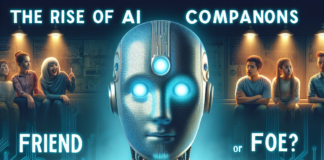The Future of Work: How AI is Redefining Job Roles in Every Industry
In the past decade, artificial intelligence (AI) has transitioned from a theoretical concept to an integral part of our everyday lives. As organizations across diverse sectors begin to adopt AI technologies, the traditional landscape of work is undergoing a transformative shift. This evolution is presenting both challenges and opportunities as job roles evolve to incorporate AI capabilities. Let’s explore how AI is redefining job roles across various industries and what the future of work might look like.
1. Automation of Routine Tasks
One of the most significant ways AI is influencing work is through the automation of routine tasks. From data entry to inventory management, AI can perform repetitive tasks with speed and accuracy far beyond human capability. This shift allows employees to focus on higher-value tasks that require creativity, critical thinking, and emotional intelligence. For instance, in manufacturing, AI-driven robots handle assembly line duties, enabling human workers to embrace roles in design, quality control, and process improvement.
2. Enhanced Decision-Making
AI technologies like machine learning and predictive analytics are enhancing decision-making in various industries. In fields like healthcare, AI algorithms analyze vast amounts of data to assist doctors in diagnosing illnesses, predicting patient outcomes, and personalizing treatment plans. Similarly, in finance, AI models evaluate market trends, minimizing risk and maximizing investments. As AI handles complex data analysis, professionals in these fields will shift towards strategic roles that leverage AI insights to inform decisions.
3. Collaborative Work with AI Tools
The future workplace will see an increase in collaborative environments where humans and AI systems work side by side. Tools like AI-powered chatbots, virtual assistants, and project management software are revolutionizing team dynamics. For example, marketing teams can utilize AI analytics to tailor campaigns while focusing on creative strategy development. As collaboration with AI becomes more normalized, job roles will incorporate the need for technical proficiency in using these tools.
4. Skill Adaptation and Lifelong Learning
As job roles evolve, the demand for new skills is rising. Employees must adapt to work effectively alongside AI, leading to an increased emphasis on lifelong learning. This can include upskilling programs like coding boot camps, AI workshops, and online courses tailored toward emerging technologies. Companies are likely to invest in training their employees to ensure they remain relevant in an evolving job landscape, fostering a culture of continuous learning.
5. Sector-Specific Changes
Different industries will experience unique transformations due to AI integration:
-
-
Retail: AI is changing customer experiences through personalized recommendations and automated checkouts. Job roles will shift from traditional sales positions to those focusing on customer relationship management and data analysis.
-
-
-
Healthcare: With telehealth and AI diagnostics, roles are shifting from manual administrative tasks to patient care coordination, data management, and IT support.
-
-
-
Finance: AI is facilitating algorithmic trading and risk assessment, leading to a reduction in traditional financial analyst roles but a rise in risk management and regulatory compliance positions.
-
-
-
Education: AI tools are revolutionizing the learning experience through personalized learning plans and administrative automation, requiring educators to adapt to new teaching methodologies infused with technology.
-
6. New Job Creation
While concerns about job displacement due to AI are valid, it’s crucial to acknowledge that AI also creates new job opportunities. Roles such as AI trainers, data scientists, and AI ethicists are increasingly crucial in an AI-driven world. Moreover, sectors like AI ethics and policy will require human oversight to ensure responsible AI use, presenting entirely new career paths for professionals.
7. Emphasizing Human Skills
As AI takes over more technical tasks, the importance of distinctly human skills—like empathy, creativity, and critical thinking—will increase. Companies will prioritize hiring individuals who excel in these areas, leading to a shift in hiring practices and employee development programs to focus on soft skills that cannot be replicated by machines.
Conclusion
The future of work is undoubtedly intertwined with AI advancements that redefine job roles across industries. Companies harnessing the power of AI can enhance productivity, improve decision-making, and foster creativity, but this comes with the responsibility to prepare their workforce for change. By investing in training and emphasizing human-centric skills, organizations can navigate this transition successfully, paving the way for a collaborative and innovative workplace. As we stand on the cusp of this new era, embracing the change that AI brings will be crucial for employees and employers alike.
More read about- This transformation is not just about machines replacing humans—it’s about humans and machines collaborating to create the future of work.







